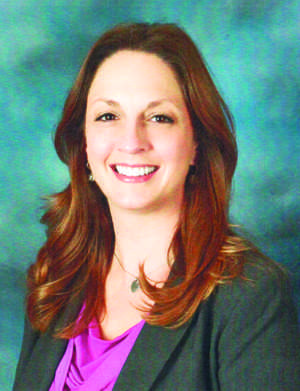The space that will eventually become the parking area for the upcoming Forensic Research Outdoor Station (FROST) was leveled Tuesday, a process observed by the newly appointed director of the facility.
Director of FROST Jane Wankmiller said this was the first construction to happen on the site, breaking ground on the beginning phases of the development of FROST. The site will be one of only eight facilities of its kind worldwide and the first to study human decomposition in a cold-weather climate.
 Starting next week, a fence will be built, then an archeological survey will be performed to ensure that there will be no cultural resources affected by the construction of FROST, Wankmiller said. These are all preliminary measures that will be taken before donors are laid on the site.
Starting next week, a fence will be built, then an archeological survey will be performed to ensure that there will be no cultural resources affected by the construction of FROST, Wankmiller said. These are all preliminary measures that will be taken before donors are laid on the site.
“I will be out there next week when they’re putting in the fence and I will be monitoring it,” Wankmiller said.
Wankmiller has served as the Unidentified Remains Coordinator for the Michigan State Missing Persons Coordination Unit and as a forensic artist, working closely with law enforcement through her career.
She said that after hearing about FROST at NMU and doing research on the upcoming facility and anthropology major, the position as directorquickly became her dream job.
“I bring real world experience,” Wankmiller said.
Wankmiller said she hopes to utilize what she has learned through working with the law enforcement community to her new position. When working in the Michigan State Police Missing Persons Coordination Unit spearheaded by her partner, the detective sergeant with the state police, Wankmiller developed a database to maintain a record of all of the unidentified remains in the state of Michigan.
“The State Police started our unit as a way of bridging a gap and making sure agencies were talking to one another.”
This was to make sure that we were not going to allow any unidentified remains or missing people to not be matched, she said.
Moving forward into her position as head of FROST, Wankmiller sees the new facility and major as contributors to the success of future forensic anthropologists by expanding the field’s knowledge of decomposition that has not been studied before. She explained that she had run into cases in her previous work that could have been affected by snow in ways that could not be determined before.
Wankmiller emphasized that body donors for FROST will be found through a “Willed Body Program,” meaning donors will be intentionally donating their bodies for science and FROST in particular. Donors will fill out extensive paperwork that asks for a detailed life history including broken bones, dental information, if they had braces, and a history of drug or alcohol use. The only reason a donor might be turned away would be due to infectious disease and possibly a weight restriction.
Along with life history, donors can specify their wishes on how their body is treated, Wankmiller said.
Wankmiller will also ask donors to provide pictures of their lives and detailed information on their skulls to assist in the training of future forensic artists. Forensic artists use data on tissue depths to determine thickness of tissue, muscle attachment sites on the bones and shapes of orbits on a face to give an impression of how a person’s face was structured during life. While pursuing her undergraduate, Wankmiller originally started in art.
“I took an anthropology class and it changed the way I saw the world, so I continued taking anthropology classes and one of the anthropology classes that I took was a human osteology class in my undergrad and all of the sudden the puzzle pieces fit together,” Wankmiller said.























